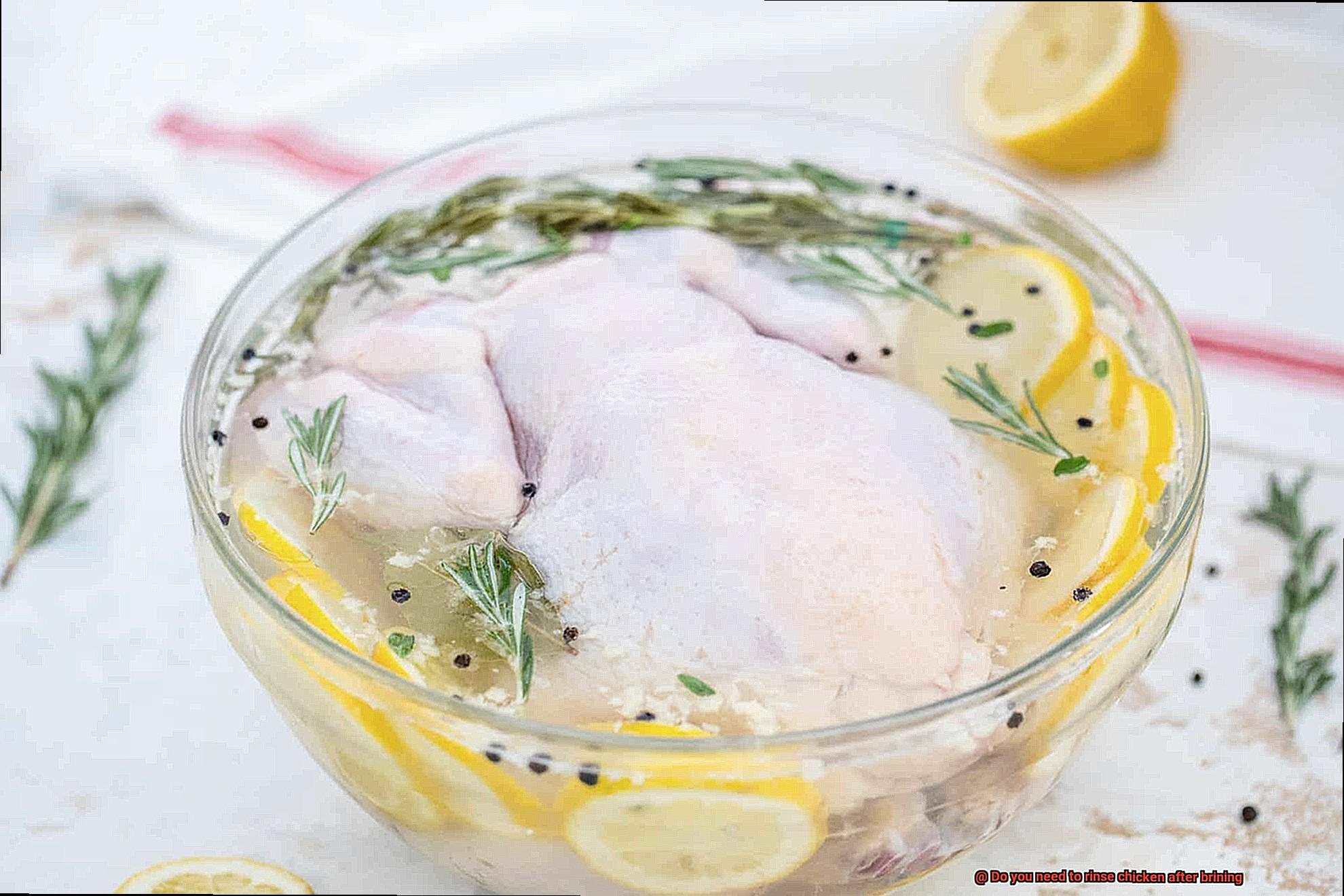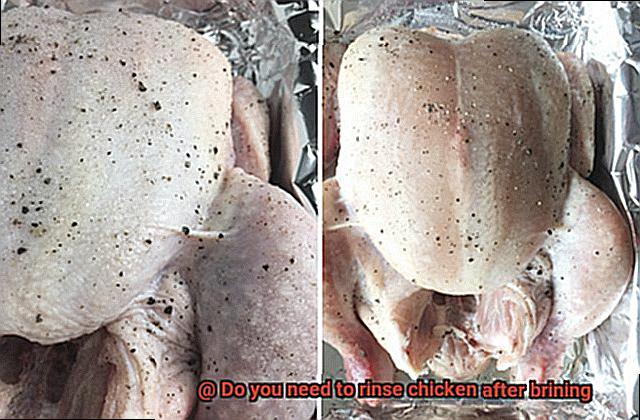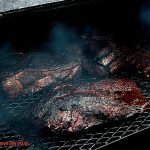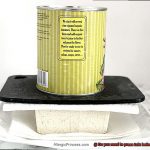Cooking chicken is an art, and brining is the secret ingredient that takes it to the next level. Imagine tender, juicy meat bursting with flavor. That’s what brining does. But here’s the burning question: should you rinse your chicken after brining?
In this article, we’ll dive into the world of brining and unravel the mystery surrounding rinsing chicken after this magical process. We’ll give you all the information you need to make an informed decision and create mouthwatering chicken dishes that will leave your taste buds dancing.
Brining is a centuries-old technique that works wonders for poultry. By soaking your chicken in a saltwater solution, you allow it to absorb moisture, seasoning, and heavenly flavors. It’s like giving your chicken a spa treatment before cooking—it comes out tender and succulent every time.

However, once your chicken has soaked up all those delicious flavors, some people argue that rinsing it under water is essential. They believe it helps remove excess salt and prevents it from overpowering the final dish. Others think rinsing washes away all the hard-earned flavors from the brine, leading to a less tasty outcome.
While opinions may vary on this matter, there are a few compelling reasons why rinsing your brined chicken is generally recommended. First off, rinsing reduces the sodium content on the outer layers of the meat. This is especially important if you’ve used a heavily salted brine or let your chicken soak for an extended period. Rinsing strikes a perfect balance between flavor and saltiness, ensuring each bite is pure bliss.
Secondly, rinsing removes any lingering bits of brine clinging to your chicken’s surface. Too much salt on the outside can result in excessive browning or even an overly salty crust—nobody wants that. By giving your chicken a quick rinse, you’re in control of the seasoning, guaranteeing a visually appealing masterpiece when it hits the plate.
Lastly, rinsing creates a clean canvas for your chosen cooking method. Whether you’re grilling, roasting, or frying, removing excess brine gives you full control over the overall seasoning. No more worries about ending up with overly seasoned or bland chicken—rinsing ensures that perfect balance.
So, there you have it—the great chicken brining dilemma: to rinse or not to rinse? While the decision ultimately rests in your hands, rins
Contents
What is Brining?
If you want to take your grilling skills to the next level, brining is a technique you need to master. Brining involves immersing meat in a solution of salt, water, and other flavorings, resulting in dishes that are both juicier and more flavorful. In this article, we will delve into the art of brining, explaining the process, its benefits, and providing tips and tricks for successful brining.
The Process of Brining:
Brining is a simple yet effective process that can work wonders for your meat. To prepare a brine solution, gather the following ingredients:
- Salt: The star of the show, salt enhances flavor and tenderizes the meat.
- Water: Acts as a carrier for flavors and helps distribute the brine evenly.
- Sugar: Optional but recommended, sugar adds depth of flavor and aids in browning during cooking.
- Herbs and spices: These can be added to customize the flavor profile of your brine.
To prepare the brine solution, follow these steps:
- In a large container or pot, combine water, salt, sugar, and any desired herbs or spices. Stir until the salt and sugar are fully dissolved.
- Place the meat in the container, ensuring it is fully submerged in the brine. If needed, weigh down the meat with a plate or other heavy object to keep it submerged.
- Cover the container and refrigerate for the recommended amount of time. This can vary depending on the size and type of meat you are brining.
- After brining, remove the meat from the solution and pat it dry with paper towels before grilling.
Benefits of Brining:
Brining offers numerous benefits that will elevate your grilled dishes. Firstly, it infuses the meat with moisture, resulting in succulent, juicy bites. Through the process of osmosis, the meat absorbs some of the brine, helping it retain moisture during cooking.
Secondly, brining enhances flavor by allowing the meat to soak up the flavors of the brine solution and any added herbs or spices. This results in a more complex and delicious taste profile that will tantalize your taste buds.
Lastly, brining improves tenderness by breaking down proteins in the meat. The salt in the brine denatures the proteins, allowing them to retain more moisture and preventing them from contracting excessively during cooking. The result is meat that is tender, juicy, and far from dry or tough.
Should You Rinse Chicken After Brining?
The question of whether to rinse the chicken after brining has sparked a lively debate. In this article, we will explore the pros and cons of rinsing chicken after brining, providing you with the information needed to make an informed decision.
Pros of Rinsing:
- Reducing Saltiness: For those who are sensitive to salt or prefer milder flavors, rinsing the chicken after brining can help remove excess salt and seasoning from the surface, resulting in a more balanced taste.
- Personal Preference: Some grillers find that rinsing the chicken provides a cleaner taste, allowing other flavors like marinades or rubs to shine through without interference.
Cons of Rinsing:
- Flavor Loss: Rinsing the chicken may wash away some of the flavorful juices and seasonings that were absorbed during brining, potentially leading to a less robust end product.
- Moisture Loss: Rinsing can also remove some of the moisture that was infused into the meat during brining, resulting in slightly drier chicken.
Conclusion:
Ultimately, whether to rinse chicken after brining depends on personal preference and desired outcomes. If you prefer milder flavors or wish to experiment with different tastes, rinsing might be worth considering. However, if you desire maximum juiciness and flavor retention, skipping the rinse step could be your best bet.
Remember, regardless of rinsing choice, pat the chicken dry before grilling to ensure proper browning. Additionally, prioritize food safety by cooking your chicken to an internal temperature of 165°F (74°C).
Reasons for Rinsing Chicken After Brining
Brining chicken is a technique that many grill masters swear by to achieve tender, juicy, and flavorful meat. However, once the chicken has been brined, the question arises
should you rinse it before grilling? In this essay, we will explore the benefits of rinsing chicken after brining and provide insights to help you make an informed decision.
The Salt Dilemma:
One primary reason for rinsing chicken after brining is to remove any excess salt from the surface of the meat. Brining involves soaking the chicken in a saltwater solution, which enhances its flavor and tenderness. However, if the chicken is not rinsed, it can become overly salty and affect the overall taste of your grilled masterpiece.
Rinsing helps to achieve a balanced flavor profile by removing any remaining salt or brine that may have been absorbed during the brining process. It ensures that the chicken is not overwhelmed by saltiness, allowing other flavors to shine through.
A Clean Canvas:
Rinsing also helps to remove impurities or residue that may have accumulated on the surface of the chicken during brining. This step ensures that your chicken is clean and ready to be cooked without any unwanted substances that might compromise its flavor or texture.
By rinsing the chicken, you are essentially giving it a fresh start. It allows you to start cooking with a clean canvas, free from any lingering residues or impurities that could potentially detract from the final dish.
Extra Layer of Protection:
Another significant reason for rinsing chicken after brining is to remove any bacteria that may be present on the surface of the meat. While brining can help kill some bacteria, rinsing with cool water provides an additional layer of protection against foodborne illnesses.
Rinsing under running water helps to wash away any bacteria that may have survived the brining process. It’s like giving your chicken a refreshing shower before it hits the grill, ensuring that you and your guests can enjoy a safe and worry-free meal.
Crispy Skin Magic:
Some chefs argue that rinsing chicken after brining can help achieve a more crispy skin when grilling. By removing excess moisture from the surface of the chicken, it allows for better browning and crisping during cooking.
Rinsing helps to eliminate any excess moisture that may hinder the crisping process. This is especially important for achieving that irresistible golden-brown and crispy skin that adds texture and flavor to your dish.
Recipe-Specific Considerations:
It’s important to note that not all recipes or cooking methods require rinsing chicken after brining. Some recipes may call for using the brine solution as a marinade or glaze, in which case rinsing would not be necessary. Always read and follow the instructions provided in a recipe to determine if rinsing is recommended or not.
Reasons Against Rinsing Chicken After Brining
Brining chicken has become a popular technique to enhance the flavor and juiciness of grilled chicken. However, there is a debate about whether rinsing the chicken after brining is necessary. In this article, we will explore the reasons against rinsing chicken after brining, focusing on how it can negatively impact the flavor, texture, and safety of the meat.
Preserve the Flavor:
One of the main reasons to skip rinsing chicken after brining is to preserve the flavors infused into the meat. During the brining process, the chicken absorbs the delicious flavors and seasonings from the brine. Rinsing off the brine can wash away these flavors, resulting in a less tasty final dish. By omitting the rinsing step, you ensure that every bite is bursting with the savory goodness that has been carefully infused into the meat.
Retain Seasoning:
Brining involves using a precise salt-to-water ratio to ensure that the chicken is not overly seasoned. Rinsing the chicken after brining can remove some of this carefully balanced seasoning, leading to a potentially bland end product. By keeping the brine on the chicken, you guarantee a well-seasoned and flavorful grilled chicken that will tantalize your taste buds.
Avoid Cross-Contamination:
Rinsing raw chicken under water poses a risk of cross-contamination. Bacteria present on the surface of the meat can splash onto your sink, countertops, or other kitchen surfaces, increasing the chances of spreading harmful bacteria and foodborne illnesses. By eliminating the rinsing step, you prioritize food safety and reduce these risks.
Achieve Perfect Texture:
The salt in the brine helps break down proteins in the chicken, resulting in a tender and juicy texture. Rinsing off the brine can interfere with this process and potentially leave you with less desirable texture. By keeping the brine on the chicken, you ensure a moist and succulent grilled chicken that will have your taste buds dancing with delight.
Safety First:
Properly cooked chicken reaches an internal temperature of 165°F (74°C), effectively killing any harmful bacteria present. If you follow safe cooking practices and ensure thorough cooking, rinsing the chicken after brining is unnecessary from a safety standpoint. Focus on achieving the perfect grilling temperature rather than wasting time and effort rinsing the chicken.
How to Properly Rinse Chicken After Brining
Brining is a popular technique used to enhance the juiciness and flavor of chicken before grilling. However, the question of whether or not to rinse the chicken after brining can be a bit confusing. In this guide, we will explore the steps to properly rinse chicken after brining, ensuring that your grilled chicken turns out perfectly seasoned and safe to eat.
Step 1: Remove the Chicken from the Brine Solution
Once your chicken has finished brining, take it out of the brine solution and place it in a colander or strainer. This allows any excess brine to drain off the chicken, preventing it from becoming too salty during cooking.
Step 2: Rinse Thoroughly Under Cold Running Water
Rinsing the chicken under cold running water is an essential step to remove any remaining salt or other brine ingredients. Make sure to rinse all sides of the chicken thoroughly, paying extra attention to areas like crevices, folds, and cavities where the brine may have accumulated. Gently rub the chicken with your hands or use a gentle stream of water to ensure a thorough rinse.
Step 3: Prevent Cross-Contamination
To maintain food safety, it is crucial to clean all surfaces that come into contact with raw chicken. After rinsing the chicken, wash your hands thoroughly with soap and warm water. Clean any utensils, cutting boards, or countertops that may have touched the raw chicken to prevent cross-contamination.
Step 4: Pat Dry with Paper Towels
After rinsing, gently pat the chicken dry with paper towels or a clean kitchen towel. This step is important because excessive moisture on the surface of the chicken can prevent proper browning during cooking. It also helps any marinade or seasoning stick better to the chicken, enhancing its flavor.
Step 5: Cook According to Your Recipe
Once the chicken is properly rinsed and dried, it is ready to be cooked according to your desired recipe. Whether you choose to grill, bake, or fry the chicken, following the cooking instructions in your recipe will ensure a deliciously seasoned end result.
Considerations When Deciding Whether to Rinse or Not
When it comes to deciding whether to rinse or not after brining chicken, there are several important considerations to keep in mind. Let’s explore these factors to help you make an informed decision.
- Purpose of Brining: Brining is a process that involves soaking chicken in a saltwater solution to enhance its juiciness and flavor. The salt in the brine breaks down the proteins in the chicken, allowing it to retain more moisture during cooking.
- Rinsing to Remove Excess Salt: If the brine was highly concentrated or the chicken has been brined for an extended period, rinsing can help remove any excess salt from the surface. This is crucial to prevent the chicken from becoming overly salty when cooked.
- Impact on Flavor: Rinsing chicken after brining can affect the overall flavor of the dish. While it reduces saltiness, it may also wash away some of the flavorful seasonings added to the brine. Consider whether maximizing flavor or reducing saltiness is your priority.
- Texture and Moisture Retention: Rinsing chicken can potentially remove some of the moisture that was absorbed during brining, resulting in slightly less juicy chicken. On the other hand, skipping the rinse allows the chicken to retain more moisture, leading to a tender and succulent final product.
- Food Safety Concerns: Proper food safety practices are essential when handling raw chicken. Rinsing after brining may help reduce bacteria on the surface, but it is not a foolproof solution. Cooking chicken thoroughly is still necessary to ensure it is safe to consume.
- Personal Preference and Recipe Considerations: Ultimately, whether to rinse or not depends on personal preference and recipe instructions. Some recipes may call for rinsing, while others may not mention it at all. Consider your desired outcome and follow trusted recipes for guidance.
The Pros and Cons of Rinsing Chicken After Brining
When it comes to brining chicken, a common question that arises is whether or not to rinse it afterwards. Let’s dive into the pros and cons of rinsing chicken after brining, so you can make an informed decision.
First, let’s talk about the pros of rinsing. Rinsing chicken after brining can help remove excess salt from the surface of the meat. This is beneficial for those who are salt-sensitive or prefer a less salty taste in their dishes. By rinsing, you can hit that perfect balance on the flavor scale.
Additionally, rinsing helps remove any residual brine solution that may have seeped into the meat during the brining process. This prevents the chicken from becoming overly salty when cooked, ensuring a flavorful but not overpowering result.
On the flip side, there are some cons to consider. When you rinse off your brined chicken, you may wash away some of those delicious flavors that have been infused into the meat. Brining is all about enhancing juiciness and flavor, so rinsing it off could diminish these desired qualities. It’s like throwing away a masterpiece before you even get to enjoy it.
There’s also the issue of moisture loss. The salt in the brine helps retain moisture in the meat, so rinsing it off can result in drier chicken. And who wants dry chicken on their grill? Not us.
Another important consideration is food safety. Rinsing chicken can increase the risk of cross-contamination, as harmful bacteria present on raw poultry can spread to other surfaces or utensils in your kitchen. If you do decide to rinse, make sure to clean everything thoroughly to minimize any risks.
KCrioLODf5g” >
Conclusion
In conclusion, it is not necessary to rinse chicken after brining.
The brine has already done its job of infusing the meat with flavor and moisture, so there is no need to wash it off. In fact, rinsing the chicken can actually wash away some of the flavorful brine, resulting in a less tasty final product.
So, save yourself the extra step and leave that chicken be after it’s been brined.






